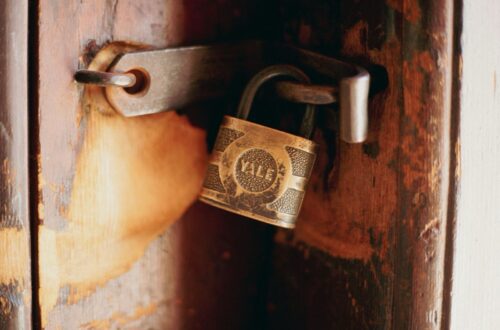Notaries public provide important impartial witness services for legal, financial, and other sensitive documents. By verifying identities and signatures, notaries foster trust and integrity across countless transactions.
Contents
What is a Notary Public?
A notary public is an official authorized by the state to independently verify signer identities, witness signatures, administer oaths, and perform other duties, ensuring the authenticity of important documents. Notaries use a special stamp containing their name, commission expiration, and other details as their official seal approving notarizations.
What Does a Notary Do?
Notaries perform several essential transaction-enabling tasks including:
- Verification of Identity: Notaries must substantiate that people signing documents are truly who they claim to be using valid photo identification and processes to detect fraud.
- Witnessing Signatures: They directly observe signings, affirming people executed agreements knowingly and without coercion for additional assurance.
- Administering Oaths and Affirmations: Notaries can administer sworn verbal promises that statements made are genuine and given under penalty of perjury if false.
- Notarizing Affidavits and Jurats: These notarized sworn written promises submitted as legal proofs or evidence rely upon notaries authenticating signers who were fully informed of contents at signing.
- Certified True Copies: Notaries can also create additional validated replicas of important original documents marked as precise copies.
When Do You Need a Notary?
Notary services are often required for a wide range of legal documents, including:
- Real Estate Documents: Deeds, loans, titles, and transfers fundamental to home sales typically demand notarization. This covers buyers, sellers, landlords, and renters alike.
- Estate Planning Documents: Wills, healthcare directives, and powers of attorney classically need notarized signatures to affirm wishes and protect estates when beneficiaries can no longer speak for themselves.
- Financial Documents: Lines of credit, loans, banking changes, and other transactions commonly call for notarized signatures from multiple parties to deter fraud through ID checks and witnessed signings.
- Business Documents: Company incorporations, board resolutions, mergers, and contracts frequently leverage notary services establishing identities and securing consent.
- Affidavits and Jurats: These sworn written oaths submitted as court evidence or legal proofs fundamentally rely on notarization formalizing legitimacy.
- International Documents: Foreign consulates often mandate notarization on various civil certificates to detect forgery plus formalize eligibility determinations for visas, work permits, or travel clearances.
Types of Notaries
While most people expect only pens and stamps, some provider types increase accessibility through specialization:
- Traditional Notaries: Stationed at established office locations daily offering walk-in services by appointment remain the most familiar options where notaries handle general documentation across industries.
- Mobile Notaries: Travel directly to client homes, hospitals, or wherever signatures are needed for those unable to make it into branch offices physically. It is especially helpful for escrowing home sales.
- Online Notaries: Utilize audio-video software allowing complete remote notarizations online without requiring physical presence in suitable states–ideal for overseas parties–enabled through identity verification technology.
- Traveling Notaries: Hit the road visiting wide geographic and neighborhood areas on demand through dispatches minimizing customer transit.
Choosing a Notary
When selecting a notary, consider the following:
- Credentials: Verify notaries hold valid active commissions in suitable states to serve your signing needs upon checking public listings. Expiration dates and counties matter.
- Experience: Most document categories need specialized knowledge. Opt for well-practiced notaries already familiar with handling needs from real estate transactions to affidavits.
- Availability: Choose services offering extended availability options from early mornings through evenings with limited delays plus quick travel times for signings even in peak periods through sufficient staff or networks.
- Fees: Contrast baseline charges, extra costs like mileage reimbursement, and guaranteed quote stability across contenders transparently disclosing full pricing.
The Notarization Process: A Step-by-Step Guide
Preparing documents for proper notarized execution is straightforward:
- Gather Documents: Have original versions of agreements requiring signatures present and review to understand obligations created. Notaries cannot offer counsel but can answer process questions.
- Find a Notary: Select a suitable provider, whether traditional, mobile, or traveling, to complement signing needs by locations/times and specialties covered. Schedule appointments per policy.
- Bring Identification: Ensure all document signers have valid government-issued photo IDs with signatures matching those on documentation–notaries validated through recorded checks. Alert services of any name change paperwork in advance if applicable.
- Appear Before the Notary: Successful identity confirmation and signing oaths require all individual signers to be in the licensed notary’s physical or virtual presence depending upon state laws and the service type selected.
- Sign Documents: Only after validating identities, notaries observe and will also co-sign when individuals complete final signature executions on applicable dotted lines.
- Payment: Finally settle service fees and mileage charges arising using preferred payment methods from major cards to PayPal. Initial quoted rates at booking lock-in guarantees barring excessive duration overages.
Finding a Notary: Where to Look
Finding a notary is typically a straightforward process, as services are widely available in most communities. Here are some common places where you can find a notary:
- Banks and Credit Unions: Most locations offer basic complimentary notarizations for account holders during business hours.
- Shipping Stores: Rapid print shops like FedEx Office nearly universally provide notaries managing distribution services.
- Lawyers and Law Firms: Most maintain staff notaries given documentation demands, with some providing this à la carte.
- Courthouses: Public officials here offer notarizations although likely just during standard weekday hours.
- Libraries: Many town libraries host accessible community notaries at select published times for patron convenience.
- Accountants and Tax Preparers: Those processing sensitive finance documentation necessarily keep notary capabilities handy internally or through networks.
- Real Estate Agencies: Reliable notarizations prove utterly essential for facilitating housing transactions, hence dedicated options onsite.
If you cannot get to one, you can opt for a traveling notary who conveniently connects clients to certified local notaries by location and legal specialization.
Frequently Asked Questions (FAQs)
What is the difference between a notary and a lawyer? While both assist with formalizing documents, lawyers offer guidance on legal matters whereas notaries solely confirm identities and witness uninfluenced signature executions.
Can a notary refuse to notarize a document? Yes, notaries can refuse service if signatures seem coerced, signers lack the capacity to consent or credible identification cannot be produced as examples per ethical codes and state laws.
How long does a notarization last? Properly fulfilled notarizations do not expire as they formally witness signatures executed on given dates. However, the signed agreements themselves govern the duration of consents and commitments made.
Conclusion
Notaries perform a valuable public service deterring fraud by verifying identities and witnessing legal documents. With many transactions and agreements needing notarization, it is key to understand when to utilize notarial services and how to find a suitable notary to meet your needs whether locally or via traveling notary options.






